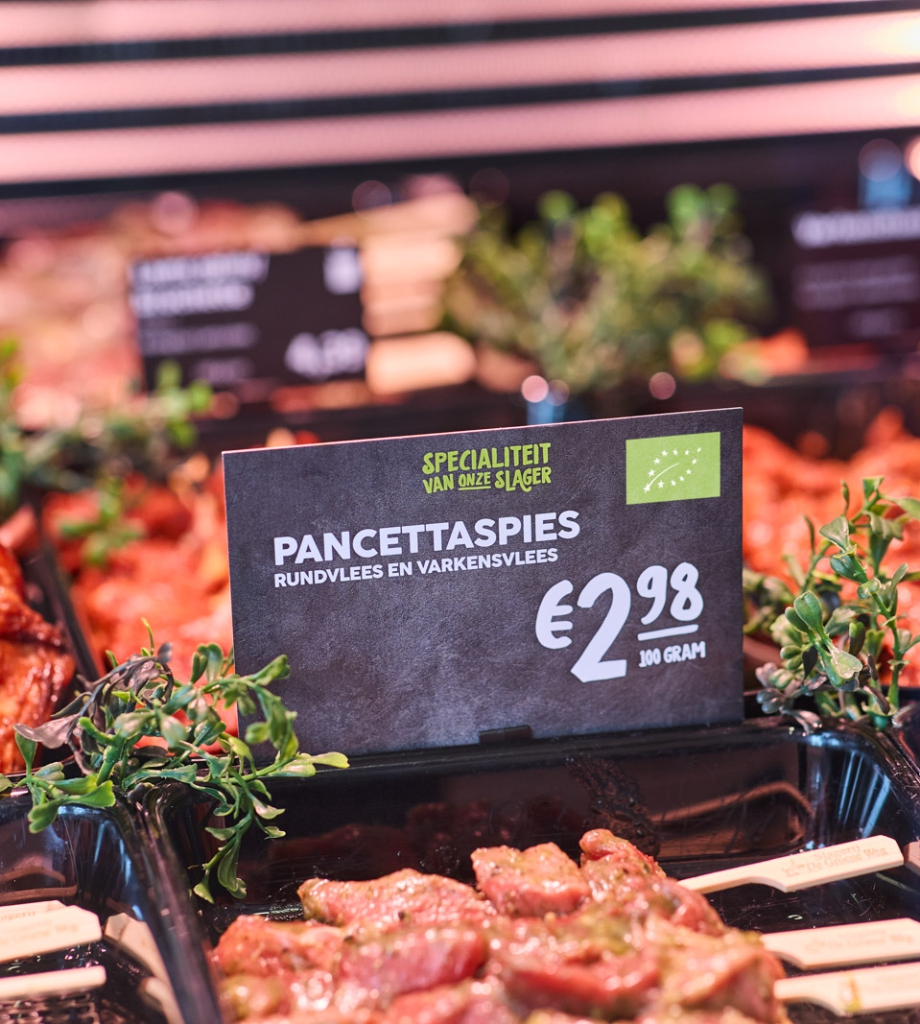Why organic?
De Groene Weg believes that meat has a place in our diet, provided it is produced organically. We can choose to eat meat a little less often or to have smaller portions, but we should buy consciously and opt for organic meat. De Groene Weg is firmly convinced that organic methods offer the most sustainable way of farming: from soil to feed, everything De Groene Weg uses in the production of organic meat complies with European organic farming regulations. Those regulations are simple: no artificial fertilisers, genetic engineering or chemical-synthetic pesticides (for healthier soil, cleaner water and more biodiversity), ample space for animals’ natural, species-specific behaviour (better for animal welfare), and contributing to the organic food cycle.


Products labelled organic must be produced using methods that create the best conditions for nature, animals and people. This applies to every link in the production chain. Farmers must comply with the rules regarding organic products and these also apply to packaging, importing, trading, exporting and storage. Moreover, the same rules are in force throughout Europe and there is only one official organic certification label for the entire European Union. This means that European producers cannot simply call their product ‘organic’. Only the official, independently verified certification assures customers that they are buying a truly organic product. These products can be recognised by the green leaf symbol.
Organic farming has many benefits for soil, drinking water and biodiversity. Farmers are making a conscious move away from intensive farming and its focus on achieving maximum production levels. Intensive farming depletes the soil and makes us dependent on artificial measures, such as chemical-synthetic pesticides and fertilisers. These interventions result in soil disruption and an imbalance in the soil ecosystem. It is far better to let nature do its own work. The same applies to animals. When animals are allowed to engage in their natural behaviours, they can live happier, healthier lives. Organic farmers rarely need to intervene with medicine for their animals. Animal welfare is a top priority in organic farming.
The Dutch government is now also convinced that organic farming should play an important role in the transition to sustainable, future-proof agriculture in the Netherlands. The Dutch government’s Biologisch Actieplan 2030 (Organic Action Plan 2030) sets out ambitious goals to significantly boost organic production and consumption.
